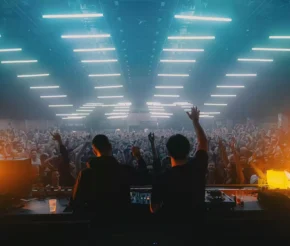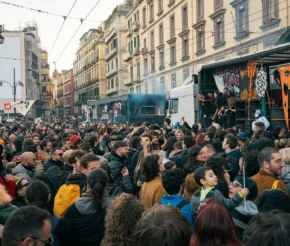- Advertise
-
Subscribe
New Zealand’s Music Festivals to Gear With Drug-Checking Services

For those gearing up for the music festival season in the Southern Hemisphere, the key advice is to test your stuff. As live music events start to take over New Zealand’s grounds, the country’s drug-checking legislation will make its grand debut.
Last year, New Zealand became the first country to fully legalize recreational drug testing for music festivals, clubbing nights, and personal use. This meant drug checking-clinics would be a common – and legal – sight at music festivals, allowing users to test their stuff without fear of consequences and repercussions.
The one-year experiment aims to reduce health risks and drug-related deaths and give recreational users advice in a safe and non-judgmental setting.
Drug-checking at music festivals will also provide an early understanding of circulating drugs, allowing organizations to deliver early warnings.
While festival organizers and nightlife venue owners are no longer at risk of prosecution if they choose to have an on-site drug-checking facility, the sale, purchase, and possession of illegal substances remains a criminal offense.
Stats published by drug-checking New Zealand service KnowYourStuff found that during 2019’s summer, more than half of the samples tested were either laced or not what they claimed to be.
New Zealand’s Drug Foundation also highlights fake drugs’ power to jeopardize music festivals. According to the organization, nearly a quarter of the drugs circulating at music festivals were not what the users expected.
Emily Hughes, the foundation’s principal science advisor, affirmed this music festival season could bring in the unexpected, as this will be the first unrestricted summer since COVID-19.
“But we know there are going to be a lot of people out there, and a lot of people using drugs at festivals. Drug checking being a lot more available than it has been in previous years is going to really help us.”
Hughes also points out that festival attendees should take everything with a pinch of salt. Instead of trusting friends and dealers, they are advised to test their gear and have harm-reduction conversations at the designated clinics.





